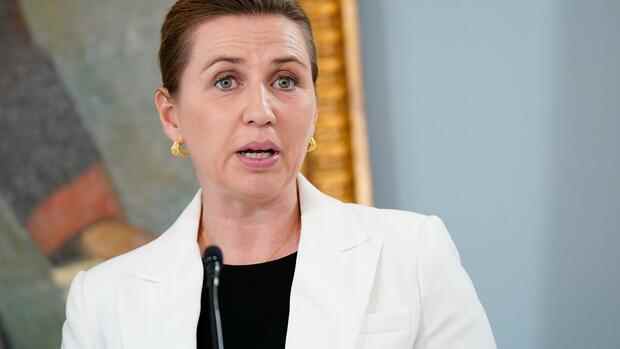Danish Prime Minister: “Historical times require historical decisions”
(Photo: dpa)
Stockholm Moscow’s war of aggression in Ukraine has triggered a turning point in many European countries: after the traditionally non-aligned countries Finland and Sweden applied to join NATO, a change is now also imminent in Denmark. So far, the country has shown a negative stance on the European Union’s common security and defense policy. Now the Danes are to vote in a referendum on June 1 on the abolition of the exception rule from the Maastricht Treaty that has existed since 1992 in this area.
Denmark’s Social Democratic Prime Minister Mette Frederiksen justified the reversal with the war in Ukraine. “Historical times require historical decisions,” she said. Russia’s brutal attack on Ukraine ushered in a new era in European history. So far, the NATO country Denmark is the only EU member not to take part in the Union’s military operations and does not make any financial or military resources available for them. Exceptions are civilian operations.
The Danish special rules became necessary after a slim majority of Danes rejected the Maastricht Treaty in 1991. This regulates the cooperation between the EU member states in various areas. This also includes a common security and defense policy.
In Denmark, fear of losing its own sovereignty was the reason for the narrow rejection. With its “No to Maastricht” Denmark plunged the EU into a serious crisis. The country was therefore granted some exceptions from the treaty, including non-participation in EU security and defense policy and monetary union.
Top jobs of the day
Find the best jobs now and
be notified by email.
These derogations made possible a second referendum in which a majority of Danes said yes to Maastricht. Since then, the Danish foreign minister has always left the room when his counterparts in Brussels are discussing security and defense issues.
support for the opposition
The Danish government now intends to remove this reservation. Copenhagen has also realized that after Russia’s attack on Ukraine, a common European security policy has become increasingly important. In order to give more weight to the abolition of the exception rule, Frederiksen secured the support of five opposition parties.
>>Read here: Sweden and Finland are to become bulwarks against Russia
According to recent polls, Denmark’s offside status could indeed be over soon. According to current surveys, 42 percent of the Danes surveyed want to vote “yes to the abolition of the EU defense reservation”. At the beginning of May it was only 38 percent. The number of opponents also rose slightly from 27 to 28 percent. Around a fifth of voters have not yet made a decision.
The governing Social Democrats have agreed with parts of the opposition beyond the referendum on a significant increase in the military budget. So far, Denmark has only spent 1.44 percent of the gross domestic product on defense, this share is expected to increase to two percent by 2033. The Danish press speculated that Chancellor Olaf Scholz’s (SPD) announcement that Germany’s defense budget would be significantly increased played an important role in the Danish decision.
More: Why Erdogan has so far rejected Sweden and Finland joining NATO
